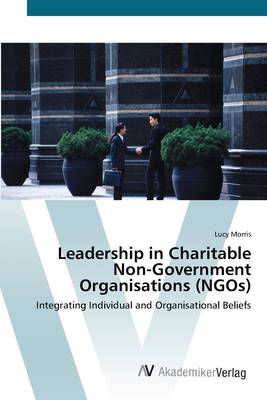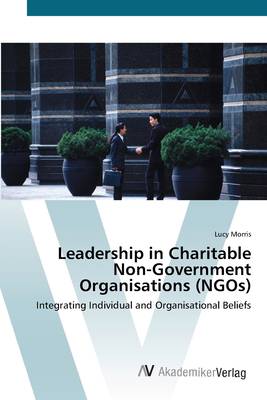
Bedankt voor het vertrouwen het afgelopen jaar! Om jou te bedanken bieden we GRATIS verzending (in België) aan op alles gedurende de hele maand januari.
- Afhalen na 1 uur in een winkel met voorraad
- In januari gratis thuislevering in België
- Ruim aanbod met 7 miljoen producten
Bedankt voor het vertrouwen het afgelopen jaar! Om jou te bedanken bieden we GRATIS verzending (in België) aan op alles gedurende de hele maand januari.
- Afhalen na 1 uur in een winkel met voorraad
- In januari gratis thuislevering in België
- Ruim aanbod met 7 miljoen producten
Zoeken
Leadership in Charitable Non-Government Organisations (NGOs)
Integrating Individual and Organisational Beliefs
Lucy Morris
Paperback | Engels
€ 91,45
+ 182 punten
Omschrijving
Revision with unchanged content. Human service community NGOs occupy a significant position in western civil society, holding roles such as employer, service provider, volunteer, carer, victim, advocate, partner and leader. They claim a shared philosophical and moral basis to support these roles and this unquestioned assumption causes significant consequences for their future as they embrace commercial prac tices and governance models. Does the NGO have the capacity to provide ethical leadership now with its shifting value systems, an increasing loss of meaningful relationships as defined by spiritual formation and entrenched gender discrimination in a postmodern, global environment? All this indicates a collapse in NGO activities through leadership fragmentation and a rise in managerial and bureaucratic technocracy. The book uses postmodernism, feminism and narrative practices to explore relationships within NGOs between employers and employees on leadership, ethics, values and spirituality. It examines emerging tensions on faith, gender, business opera tions and asks what next? . The book is intended for community, govern ment and business professionals and leaders who work with human service NGOs.
Specificaties
Betrokkenen
- Auteur(s):
- Uitgeverij:
Inhoud
- Aantal bladzijden:
- 348
- Taal:
- Engels
Eigenschappen
- Productcode (EAN):
- 9783639418729
- Verschijningsdatum:
- 27/05/2012
- Uitvoering:
- Paperback
- Afmetingen:
- 152 mm x 229 mm
- Gewicht:
- 508 g

Alleen bij Standaard Boekhandel
+ 182 punten op je klantenkaart van Standaard Boekhandel
Beoordelingen
We publiceren alleen reviews die voldoen aan de voorwaarden voor reviews. Bekijk onze voorwaarden voor reviews.









